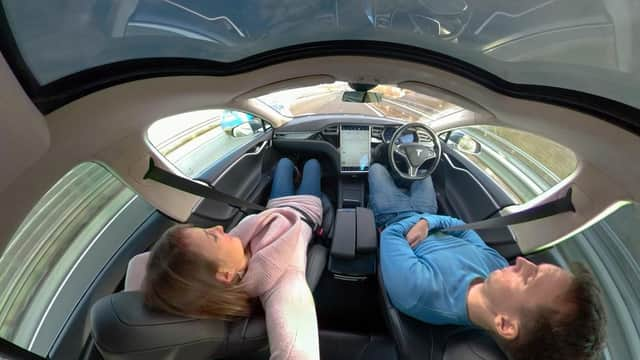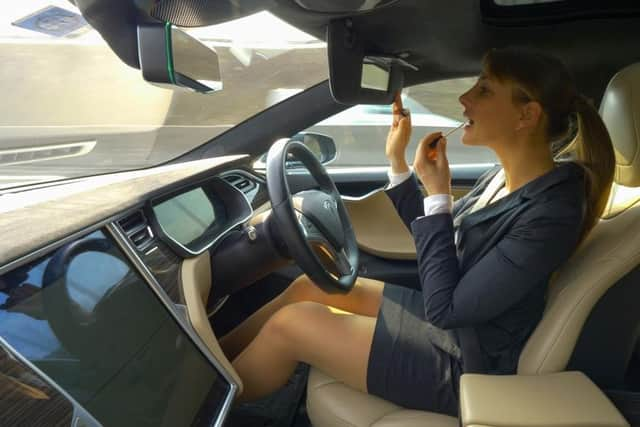Safety experts and insurers urge caution over claims of ‘self-driving’ cars on UK roads


Car insurers and safety experts have warned that the Government’s announcement that self-driving cars will be allowed on UK roads this year is misleading and potentially dangerous.
The Department for Transport (DfT) has announced that following a consultation the Government has set out how vehicles fitted with automated lane keeping systems (ALKS) could legally be defined as “self-driving” and allowed to operate on UK roads by the end of 2021.
Advertisement
Hide AdAdvertisement
Hide AdHowever, Thatcham Research and the Association of British Insurers (ABI) have warned that ALKS technology does not constitute automated driving and describing it as self-driving will contribute to dangerous confusion over the capabilities of the systems.


The DfT says self-driving technology could help reduce crashes caused by human error, which account for 85 per cent of all accidents. ALKS is designed for use on motorways in slow-moving traffic and allows the driver to relinquish control of speed and lane position to the car but requires them to be able to take back control at any time.
Matthew Avery, director of research at Thatcham Research, said that the need for a driver to be able to intervene means ALKS remained a driver assistance technology rather than a self-driving system.
He said: There is still a lot of work needed by legislators and the automotive industry before any vehicle can be classed as automated and allowed safely on to UK roads.
Advertisement
Hide AdAdvertisement
Hide Ad“Automated lane keeping systems as currently proposed by the Government are not automated. They are assisted driving systems as they rely on the driver to take back control.
“Aside from the lack of technical capabilities, by calling ALKS automated our concern also is that the UK Government is contributing to the confusion and frequent misuse of assisted driving systems that have unfortunately already led to many tragic deaths.”
Mark Shepherd, assistant director of the ABI, said: “While the insurance industry fully supports the development towards more automated vehicles, drivers must not be given unrealistic expectations about a system’s capability.
“It is vital that automated lane keeping systems, which rely on the driver to take back control, are not classed as automated, but as assisted systems. By keeping this distinction clear we can help ensure that the rules around ALKS are appropriate and put driver and passenger safety first.”
Advertisement
Hide AdAdvertisement
Hide AdJim Holder, editorial director of consumer title What Car?, said it was vital that drivers were properly educated.
He said: “Revising the Highway Code to take into account self-driving technology is an important first step in having the right legislative framework to allow driverless vehicles to operate on UK roads. However, past events have shown just how important it is to ensure drivers understand the limitations of the technology, and do not confuse driver assistance systems or semi-driverless technology with a fully autonomous feature.
“Today’s announcement is interesting as it allows manufacturers to define existing automated lane keeping systems as self-driving technology. Other national bodies have taken a different view. Last year, a court in Germany ruled the wording “Autopilot” as misleading. Countries should look to eventually agree on the accepted wording, as it makes little sense for consumers to be able to buy a ‘self-driving’ car in one market and have it called something else in a different market.”